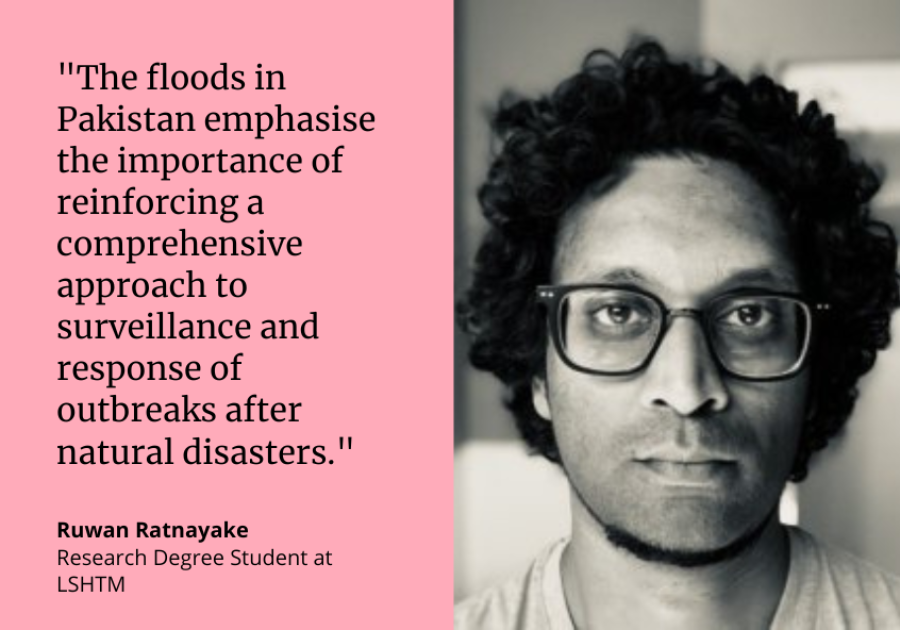
Pakistan is one of the most epidemic-prone countries in the world, with ever-present outbreaks of dengue, malaria, and the persistence of poliomyelitis transmission. Now, unprecedented flooding due to deadly monsoon rains is burdening 33 million of the country’s 222 million population.
Flooding persistently exposes populations to standing water and leads to pervasive faecal contamination in wells and drinking water. This promotes the emergence of waterborne diseases including cholera, hepatitis E, and typhoid, giving rise to large-scale outbreaks that are very difficult to control.
Read more for the rest of Ruwan's comment on disease outbreaks following flooding in Pakistan.
Our postgraduate taught courses provide health practitioners, clinicians, policy-makers, scientists and recent graduates with a world-class qualification in public and global health.
If you are coming to LSHTM to study a distance learning programme (PG Cert, PG Dip, MSc or individual modules) starting in 2024, you may be eligible for a 5% discount on your tuition fees.
These fee reduction schemes are available for a limited time only.
